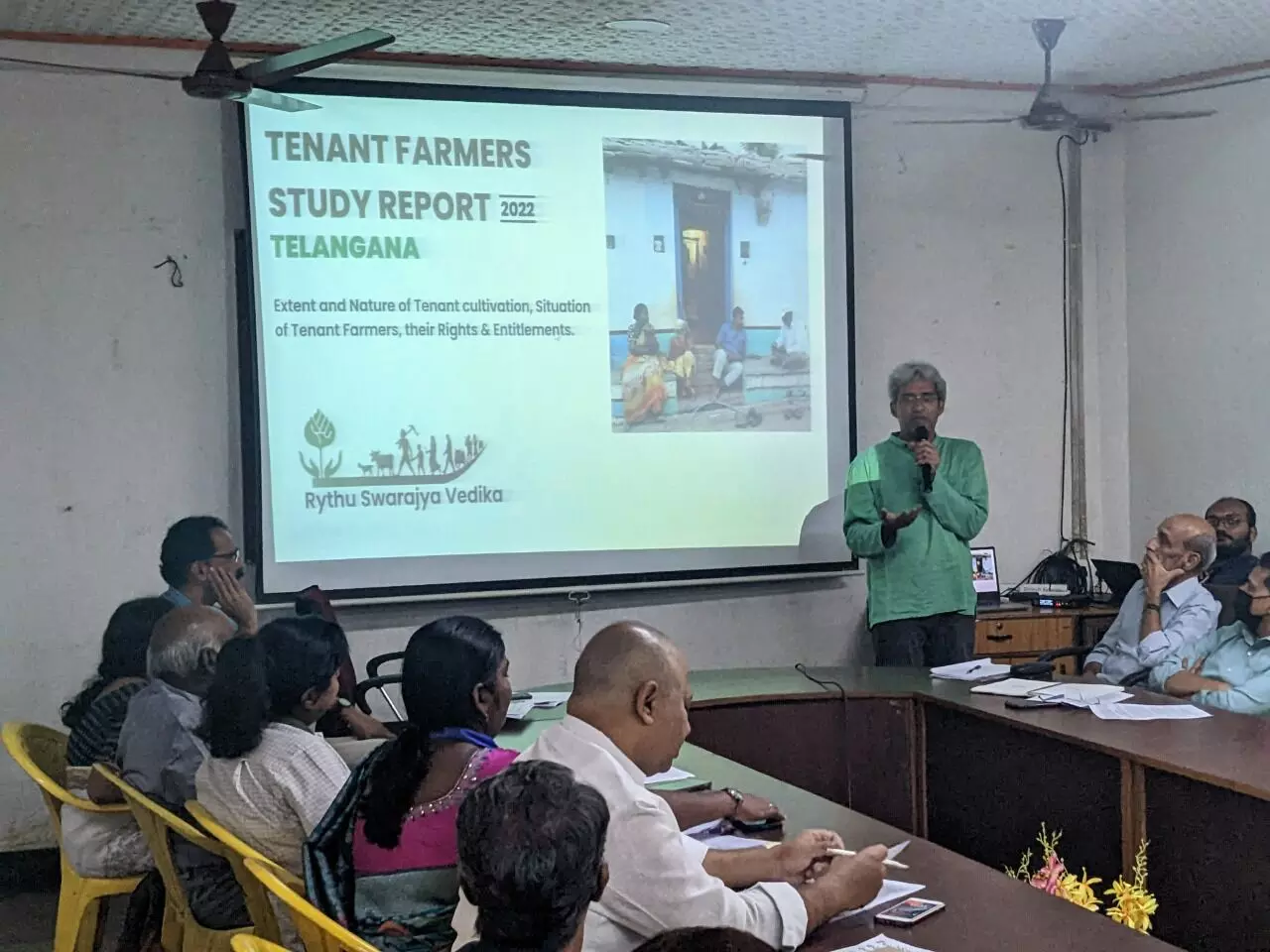Suffering in silence: Tenant farmers double in Telangana; left out of welfare schemes
Rythu Swarajya Vedika (RSV) released a first-of-its-kind report, an extensive study of the tenant farmers in Telangana, at a Roundtable meeting in Hyderabad at the Sundarayya Vignana Kendram on December 14, 2022.
By Amrutha Kosuru
"I have three children, no land, and a lot of debt," said Alivelu, a tenant farmer from Chinthapalle Mandal of Telangana's Nalgonda district.
Alivelu has been working as a tenant farmer for nearly a decade. She began working as a tenant farmer after her husband committed suicide. Like many other tenant farmers, Alivelu's agricultural debt continues to rise due to a lack of financial assistance or identification of tenant farmers in Telangana.
Alivelu is one of the 7744 farmers surveyed by Rythu Swarajya Vedika.
Rythu Swarajya Vedika (RSV) released a first-of-its-kind report, an extensive study of the tenant farmers in Telangana, at a Roundtable meeting in Hyderabad at the Sundarayya Vignana Kendram on December 14, 2022.
RSV conducted a door-to-door survey covering 7744 farmers in 34 villages across 20 districts. The study found that 36% of the total farmers in Telangana are tenants cultivating leased land. Out of 7,744 farmers, 2753 are tenants.
On the other hand, NSSO Land Census 2019 estimates 17.5% as the extent of tenant holdings. "Our most recent survey observes that the number of tenant farmers has nearly doubled," said Kiran Vissa of Rythu Swarajya Vedika.
"Despite the increase, the Telangana government has excluded tenant farmers from all support systems. Welfare schemes such as Rythu Bandhu only provide financial assistance to landowners irrespective of whether they cultivate or lease land," he explained.
The study also found that 19% of tenant farmers do not own any land. It was also found that approximately 9% of tenants are women. Only 5% ever received a Loan Eligibility Card under the Licensed Cultivators Act, 2011.
The 2011 Land Licensed Cultivators Act requires the government to identify and register actual cultivators and issue them Loans and Other Eligibility Cards (LEC) to access bank loans and other schemes. However, after 2015, the state government stopped implementing the Act.
The study found that only 12 out of 2753 tenants (0.4%) received a share of Rythu Bandhu support from landowners. Additionally, only 17 (0.6%) had their lease rate reduced due to Rythu Bandhu.
It is essential to note that 77% suffered severe crop damage in the last 3 years but only 1% received compensation.
Narasimha from Vikarabad explained how government authorities do not support them when crops are damaged so that they may receive compensation. "This forces us to take more loans from private money lenders," he said.
"The Chief Minister himself declared in the Assembly that it is not possible to register and identify the tenant farmers as they lease land from one owner for one year and another year from another," Kiran said.
In 2018, the state government removed the column of cultivators to register in pattas. With this, tenant farmers, women farmers, and tribal farmers who do not have land titles are not recognized as farmers and are not included in any government support systems.